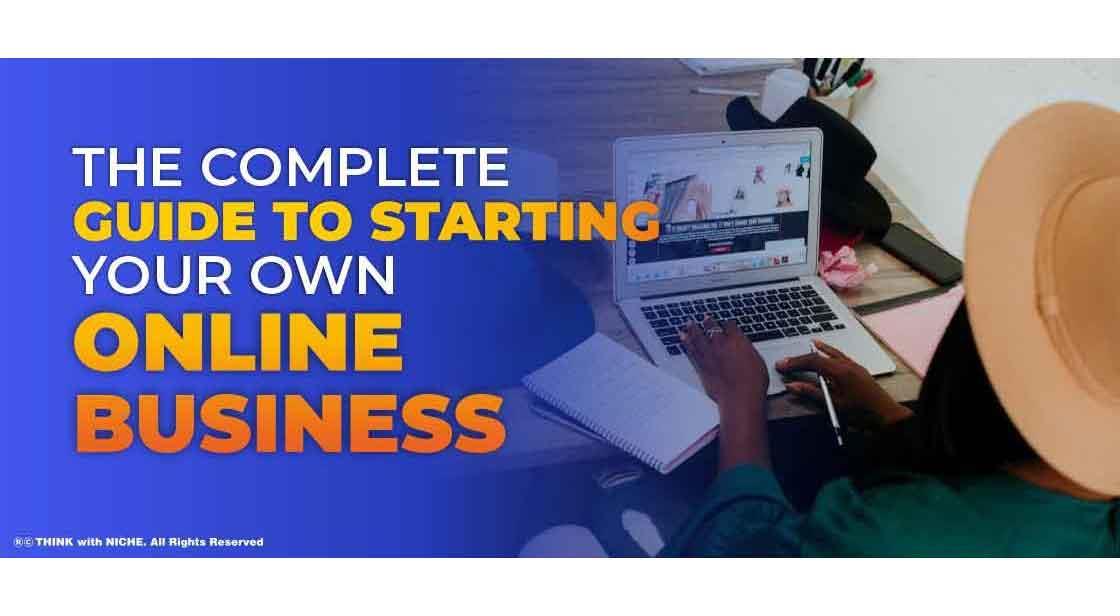The Complete Guide to Starting Your Own Online Business

Blog Post
If you're looking to start your own business, the first thing you need to do is come up with an idea. There are plenty of ways to find inspiration for your business idea. Figure out who your target audience is and what products or services they might be interested in. #ThinkWithNiche
If you're looking to start your own business, the first thing you need to do is come up with an idea. Yet, coming up with that idea can be tough. There are plenty of ways to find inspiration for your business idea, including talking to friends and family members, brainstorming on paper, and even looking at successful businesses.
Introduction
Coming up with a business idea can be difficult. The key to this process is dedication and having patience. It's important to take the time to brainstorm, do research, and ask friends and family members for input.
What is an online business?
An online business is a business that does not have a physical location. It's about building an online presence. It's important to note that many businesses are now operating solely in the digital realm. For example, eBay is an established company with no physical locations. They are exclusively internet-based, and they sell products to customers all over the world.
How to come up with a Business Idea
If you're looking to start your own business, the first thing you need to do is come up with an idea. Yet, coming up with that idea can be tough.
The good news is that there are plenty of ways to find inspiration for your business idea, including talking to friends and family members, brainstorming on paper, and even looking at successful businesses. Once you've found your business idea, you'll want to take some time to sketch out who your target audience is and what they might be interested in. The next step is figuring out what products or services will work best for this audience. Finally, you need to figure out how much it will cost for supplies for your business and how much time it will take for you to run it.
For example, if you're running a catering company and catering isn't something you know anything about yet, it's worth asking someone in the industry about their experience in the field. It could be a friend who works as a chef or manager or another restaurant manager who runs part of their catering department.
The target audience for your business
As you may have guessed, your target audience is the group of people you want to focus on. You need to know who they are and what they like so that you can create a marketing strategy that will speak to them. If your family and friends helped with brainstorming, try asking them what they think the target audience for your business might be. They might help you come up with ideas about products or services that would work well for this group of people. You may also want to do some research online or look at successful businesses in your area to figure out who their target audience is and what products or services they're most interested in.
The types of products and services you should offer
Now that you know who your target audience is, you can figure out what products or services will work best for them. It is the fun part! There are a few different types of products and services to offer when starting your business. All of these have their own benefits. Services are things you do for people. You could offer consulting, coaching, or even an in-person service like massages. Products are physical items that people purchase from your company. These can include food, clothing, furniture, or even construction materials. The most important thing to remember when figuring out what products or services to offer is that it's critical to determine what your target audience wants and needs most. That way, you're not wasting time trying to sell something they're not interested in!
Another thing that can be influential to your success is leveraging social listening tools. Social listening is the process of understanding what your target customers think, what are they talking about, how they feel and specifically, what they need from your business.
How much it will cost to start your business
Before you start your business, it's important to have a strong understanding of how much it will cost. One of the first things you'll want to do is find out how much money you'll need to cover startup costs. It includes things like printing, marketing materials, or any other expenses related to starting your business. Another thing that can cost a lot of money in inventory. It is especially true if you're starting a clothing line or selling food products. You need enough inventory on hand at all times so that customers can purchase what they want when they come into your store or visit your website. You also need to make sure that this inventory doesn't expire before it can be sold. Coming up with the money for these startup costs can be tough, but there are plenty of ways for you to save money and still get started on the right foot. For example, you could ask friends and family members for financial help or go online and search for grants designed specifically for businesses that are just getting started.
The time it takes to run your business
Starting a business takes a lot of time and energy, so you'll need to be prepared. It includes estimating how much time it will take you to run the business. Once you have this estimate, you can compare it to your other commitments and obligations. If you have a full-time job or children at home, running a business may not be the best idea for you. It's important to carefully evaluate your schedule and commitments before starting a business. It's also important that you understand how much work it'll take on your part for this new venture. Of course, you have to do the things that any other entrepreneur would do: Researching products, marketing, managing employees—you name it! But as an independent contractor, there may be tasks that are optional for other entrepreneurs, like accounting or filling out paperwork about your company with the government. In the end, it's up to you to decide if starting your own business is right for you. If it is, then don't let these obstacles stop you from taking the first step towards success!
You May Like
EDITOR’S CHOICE












